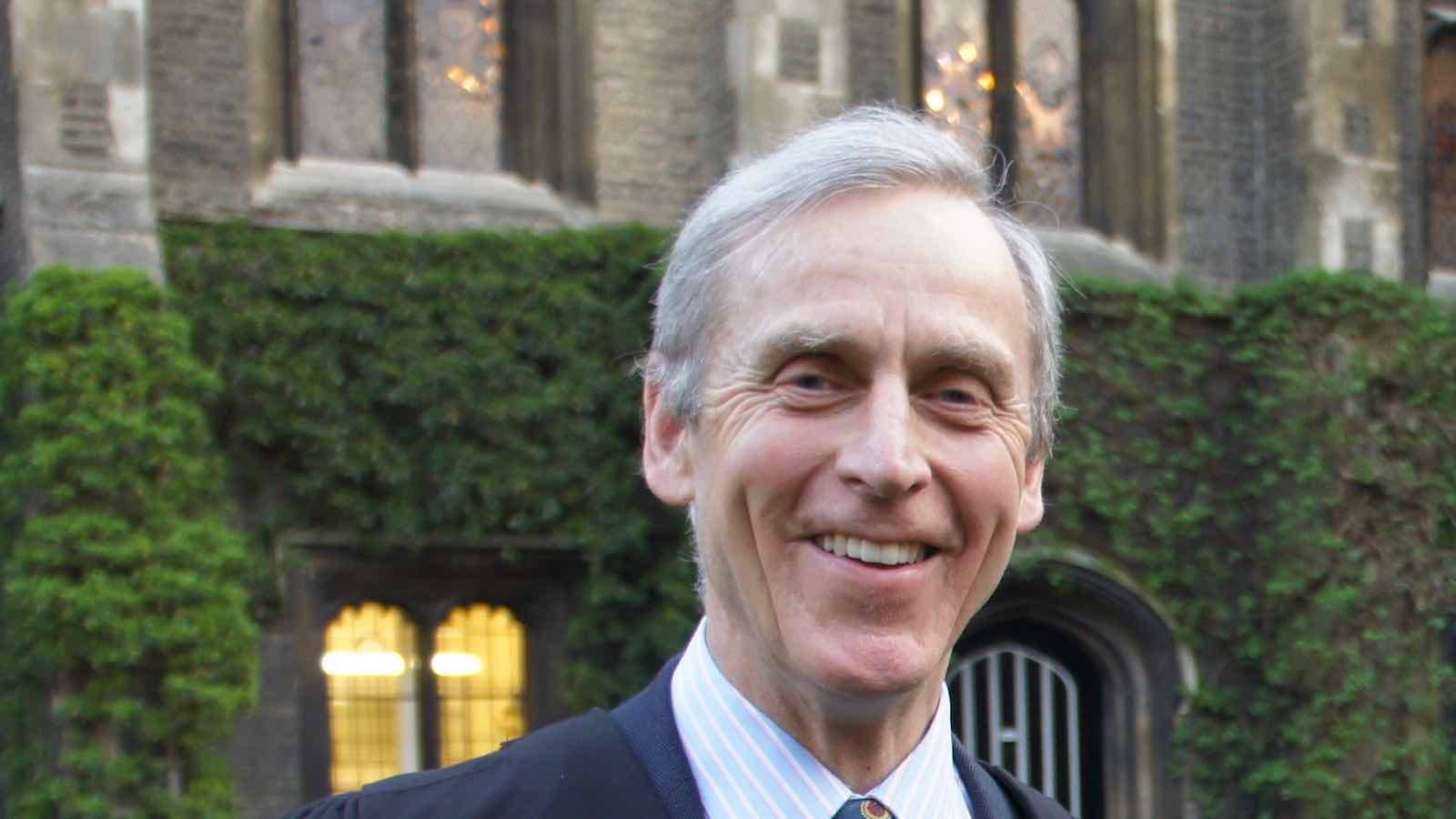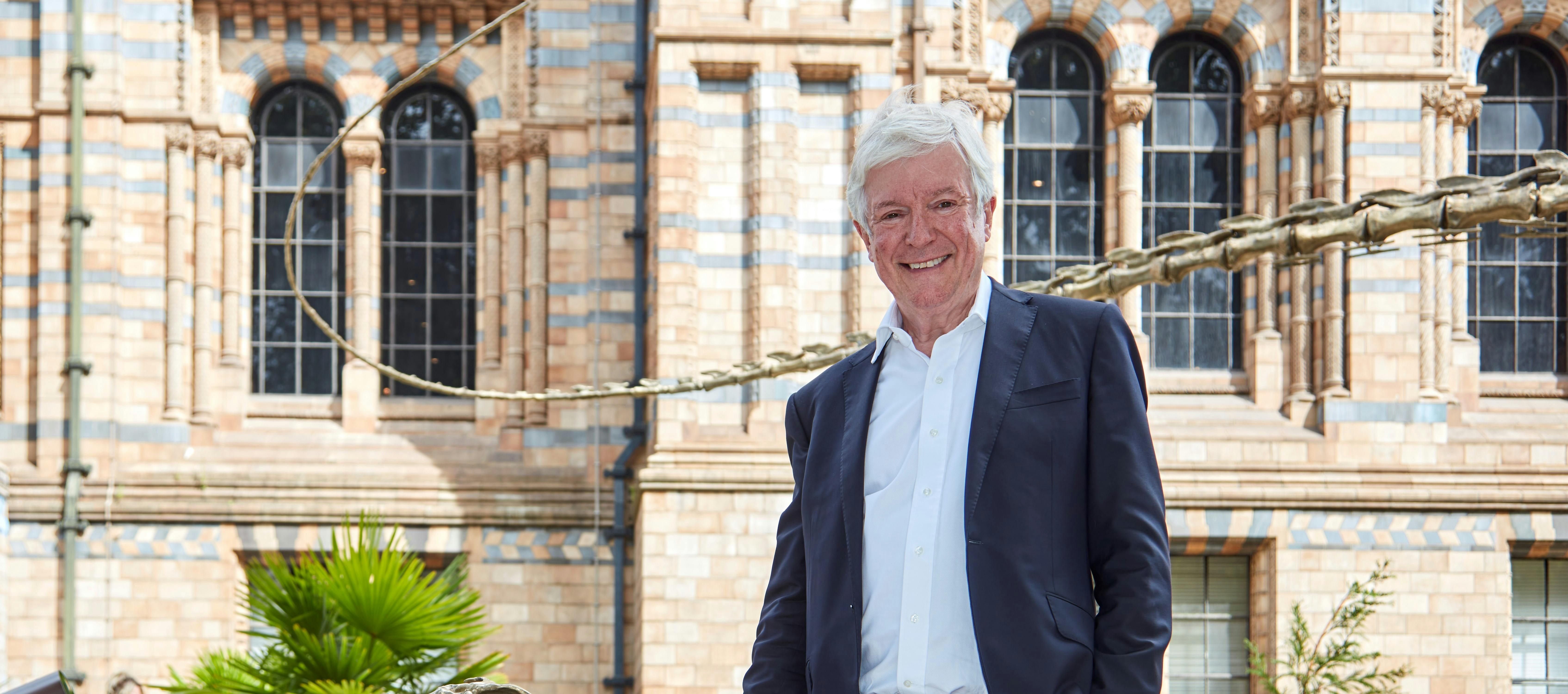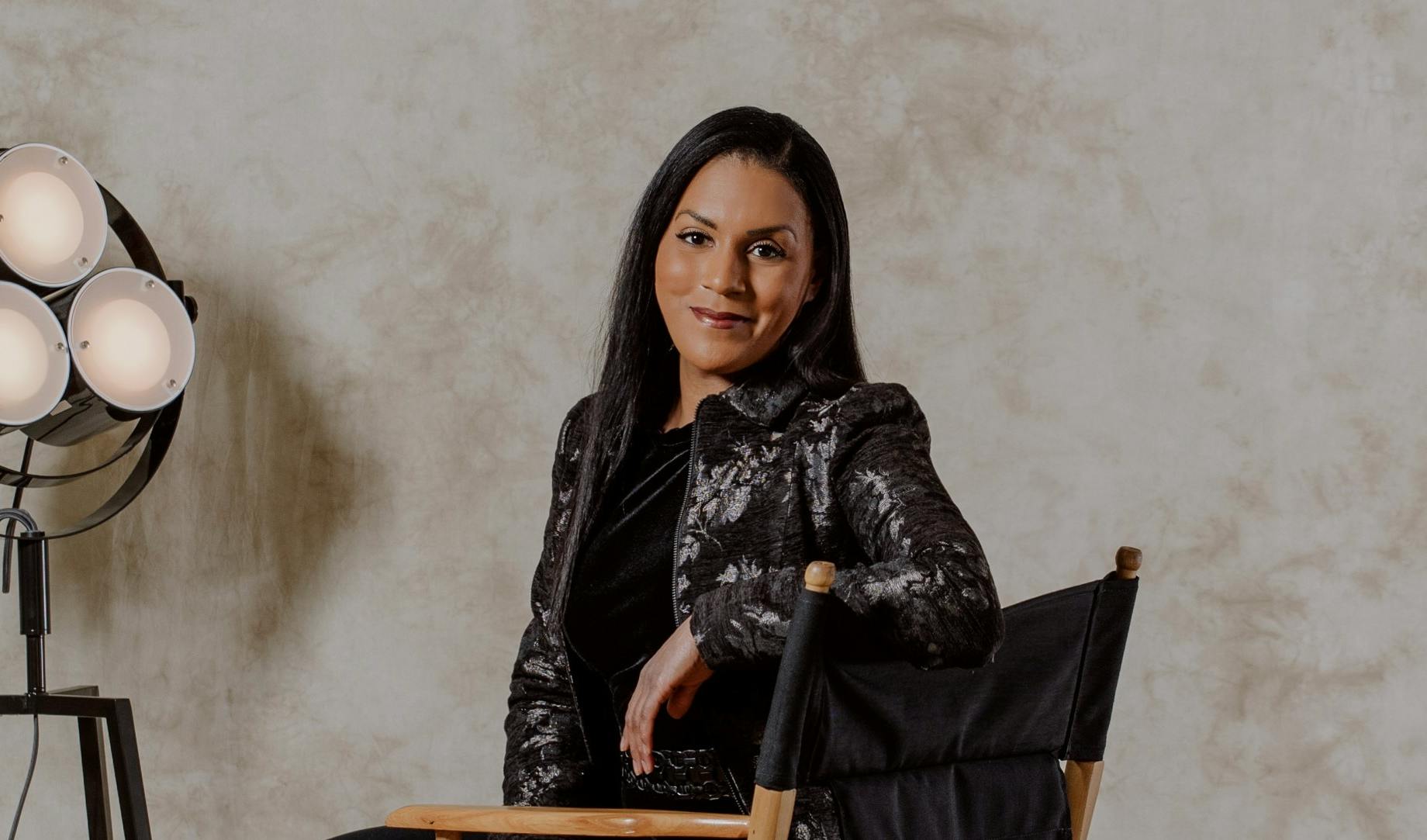
The former UK ambassador to Oman and Kuwait, Stuart Laing, explains how a career in the Foreign Office prepared him for Oxbridge governance
Stuart Laing has transferred his diplomatic skills and attachment to the Middle East to a new portfolio career within educational and cultural institutions
After nearly forty years at the British Diplomatic Service, Stuart Laing returned to his alma mater, Corpus Christi College Cambridge, as Master. After chairing the Governing and Executive bodies for ten years, he stepped down at the end of the last academic year to take up the Chair of the Remuneration Committee of sister institution, Corpus Christi College Oxford. Laing's other board roles demonstrate his commitment to retaining his ties with the Middle East; he is Chair of the Anglo-Omani Society and Trustee of the Gulf Research Centre, Cambridge. Here he talks about how his background in diplomacy and his life as an expat set him up for his second career and how Oxbridge governance differs from that of any other university.
What inspired you to make the move from the Foreign Office to higher education?
I had been Ambassador in Muscat, Oman and I was Ambassador in Kuwait and coming towards the end of my time there, because foreign office postings have a fixed time limit, and I began looking around to see what I might do next. I had an open mind as to what I might do after the Foreign Office, but by extraordinary good fortune the post of Master of my old college, Corpus Christi College Cambridge, where I had been an undergraduate, came free.
So, I applied for it. I underwent the usual interview process, which involved making a presentation to the Fellows of the college and I felt very fortunate and very privileged to be elected Master. Without hesitation I accepted and left Kuwait.
It was the opportunity for me to enter into a sphere that I half knew and half didn’t know. I knew it because it had been my college, but I didn’t know it because I had yet to learn about working in higher education.
How have the skills that you gained from a career in the diplomatic service transferred to higher education?
There are some superficial similarities. As Master of a college there is quite a lot of representational work. You chair committees and act as a coordinator, you are not chief executive, but you are someone who ensures that the whole system runs efficiently and effectively to achieve its objectives. And I think that the public service in general, and the foreign service in particular, equipped me quite well to adapt to that sort of role.
And adapting, is another thing which the Foreign Office, probably more than other careers in public service, really does teach you how to do. To be a successful diplomat you need to be able to adapt from your own society to other societies and within those other foreign societies from one place to another. You may be living in a very civilised place for three years and then be somewhere more difficult and more challenging for the next three years. So at every place you go to, you have to see what you can use from your previous experience and then adapt to the circumstances that you then face.
What has been the biggest challenge that you have faced in your new career in education?
The most difficult thing in my college in Cambridge was that the previous Master had left after a very short time and the atmosphere in the college was traumatised by this experience. As the new Master I had to try and pour oil on these troubled waters and encourage people to get back into the habit of working together – that is, to run the organisation in a way that benefitted staff, students and fellows. Restoring that lost sense of community was the biggest challenge.
The finances of the college were in a state of disarray when I arrived too, because of the trauma of the previous two years. The endowment wasn’t affected, but the income and expenditure was not in a satisfactory state. I worked with the new bursar, who arrived at the same as I did, to restore that income and expenditure to a proper balance. That took about four years. It was very satisfying to turn that around.
Do you feel that governance of an Oxbridge institution differs from that of other universities?
The biggest difference is that the college system gives autonomy to the individual colleges and there is always a bit of tension between the colleges and the university, because the university is a large charity, much larger than any of the colleges. The university has its policies and the colleges have their policies and everyone is guarding their independence. But at the end of the day, it is the university together with its colleges that is the strong institution that we like it to be which helps make Cambridge and Oxford two of the top ten universities in the world. Making sure that that tension doesn’t become destructive is always important.
What other roles do you hold at present?
Another role that takes up rather more time than you’d expect, is chairing the Anglo-Omani Society. This is a bi-lateral relations society, of which there are a lot in London maintaining links between the UK and countries abroad. Most of them survive on their often meagre members’ subscriptions.
The Anglo-Omani Society is different because His late Majesty, Sultan Qaboos, who died recently, very generously endowed the Society with a building off Piccadilly, which we only use one third of. The other two thirds give us an income from rent, which enables us to give grants. So apart from running the bilateral relations society in the traditional way, we have a programme of lectures and we manage a considerable number of grants, which mainly goes on British academic research in Oman.
I am also on the Board of Trustees of the Gulf Research Council, which is an academic body that organises a conference on Gulf research matters once a year in Cambridge. Then there’s my most recent position, which I got through Nurole, as Chair of the Remuneration Committee of Corpus Christi College Oxford.
How did you find the Nurole process?
I made a couple of applications that didn’t work, and then the one that did, and I’ve found the system works very well. The process of offering opportunities that you can look at and discard if they don’t suit you, or put in an application for if they do, it all works very smoothly.
Now for some quick fire questions…
What book has made the biggest impression on you?
Karl Popper’s The Open Society and its Enemies. Popper’s analysis of how political power should be exercised, and especially how rulers and governments can be replaced peaceably.
Do you have a favourite quote?
“In for a penny, in for a pound, it’s love that makes the world go round!”
What’s your favourite holiday destination?
Speyside, in north-east Scotland
What you most enjoy doing in your spare time?
Cycling, and playing music (not at the same time)
What’s your most used app?
WhatsApp, for chatting with family
If you are looking for non-executive director roles, Nurole's innovative recruitment platform can help.





